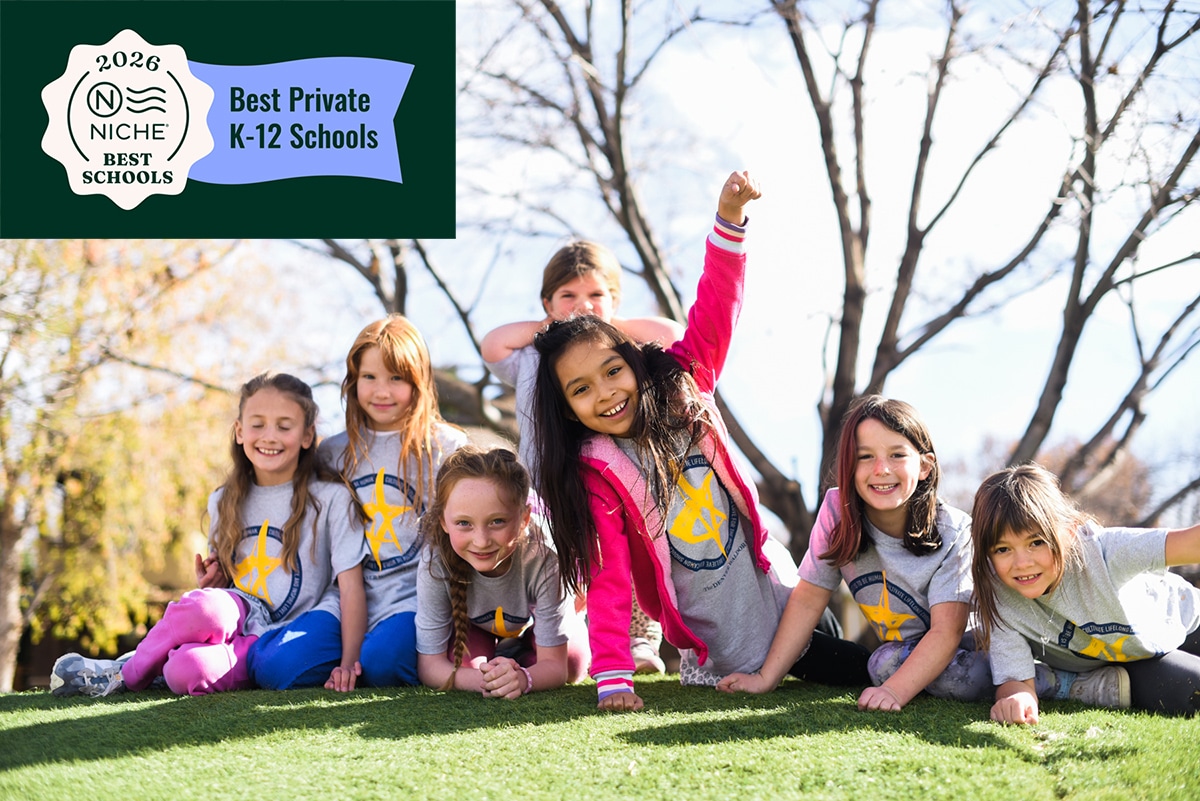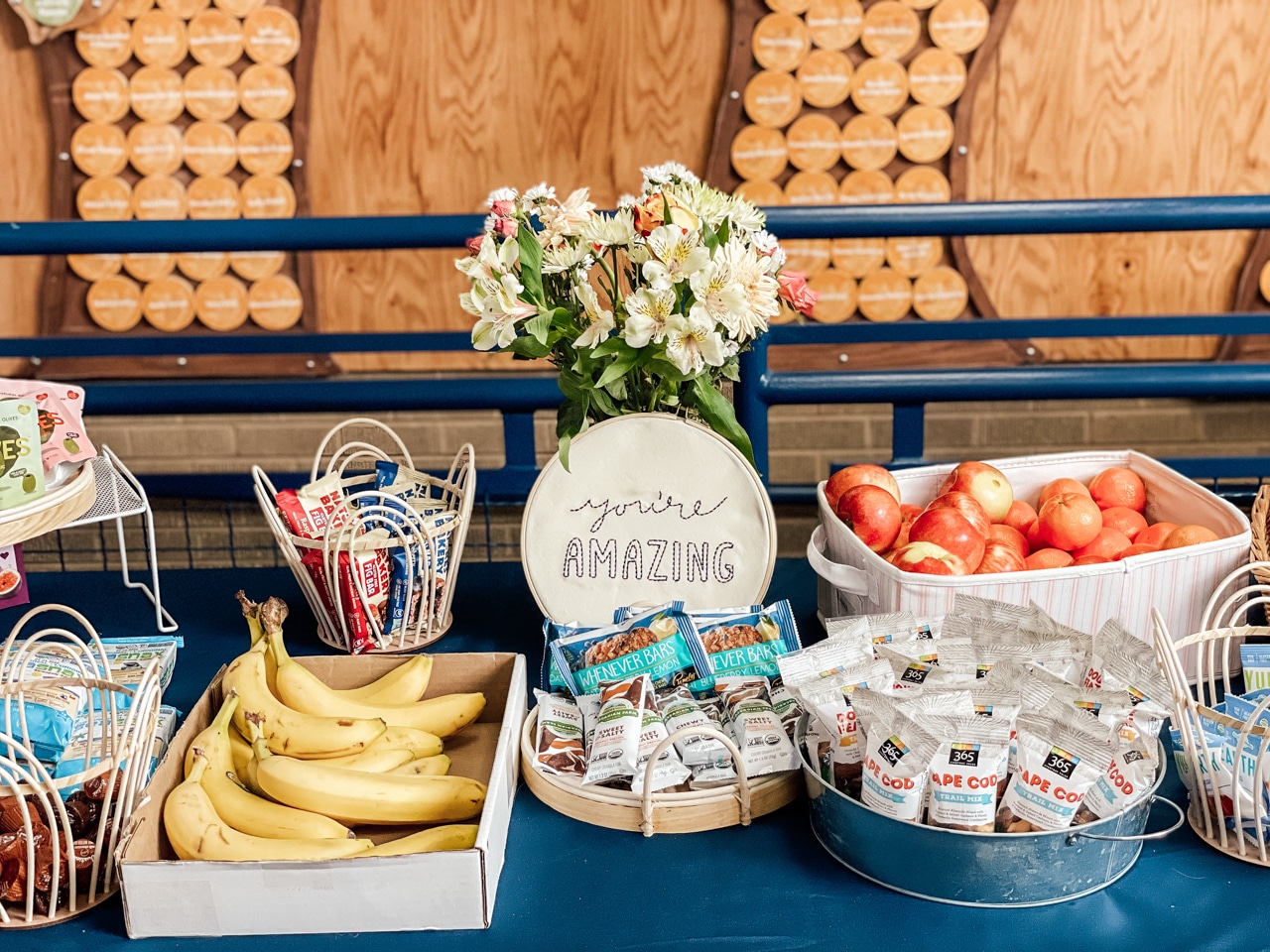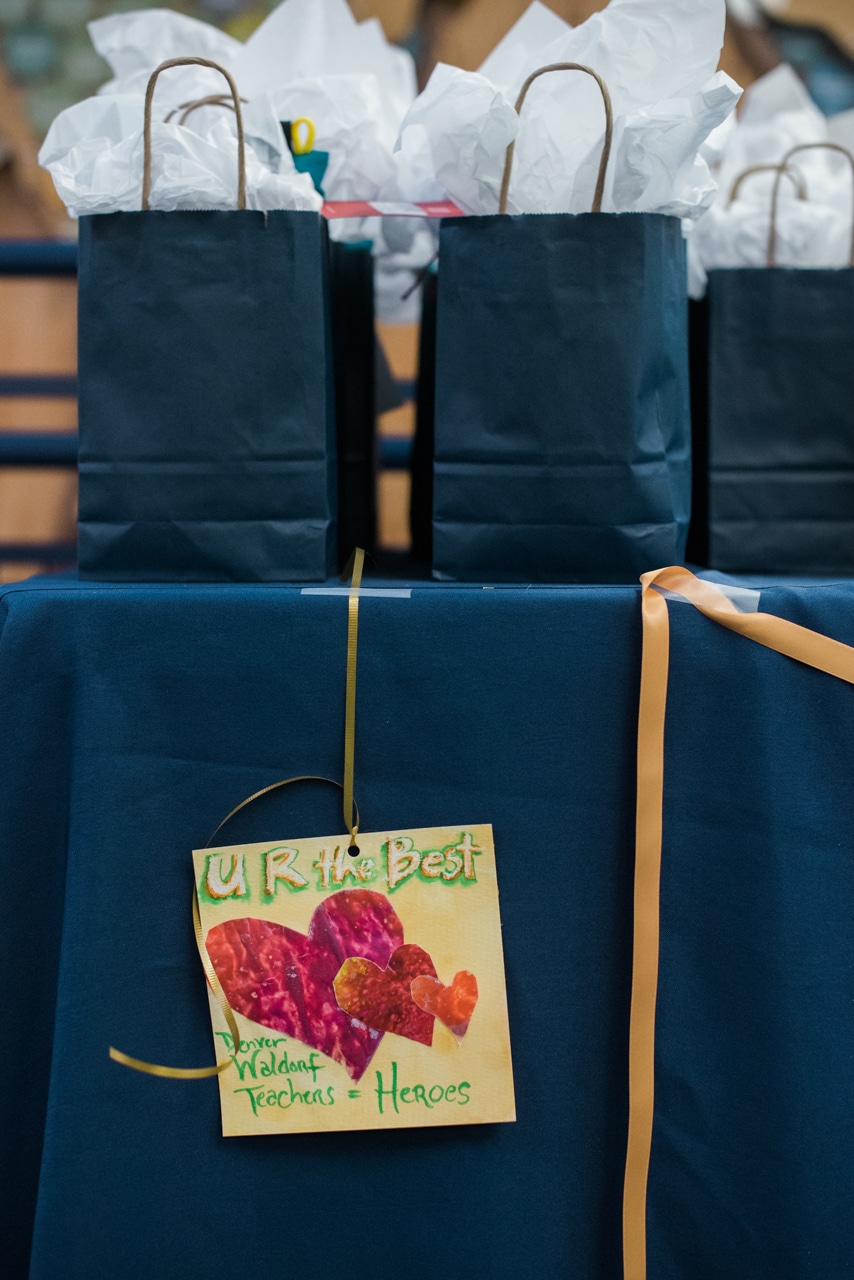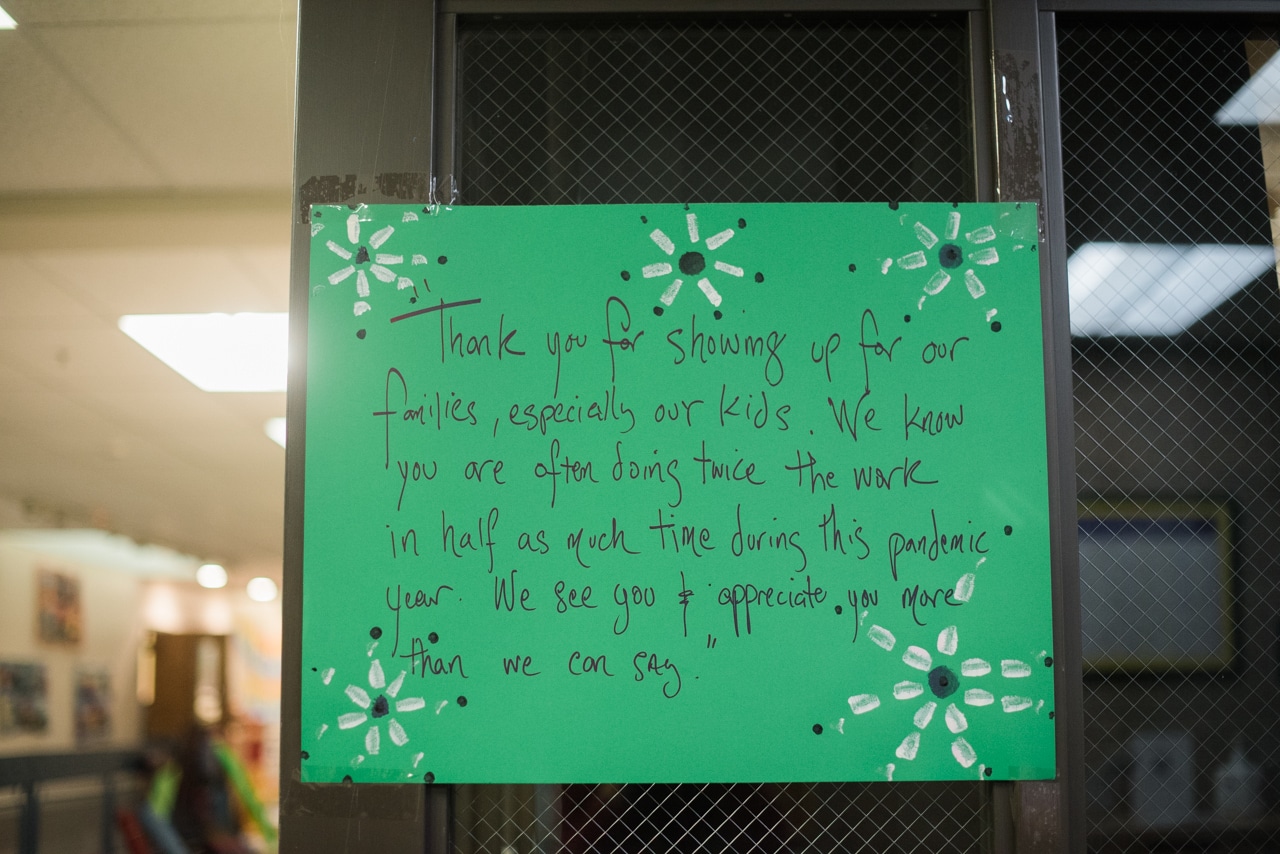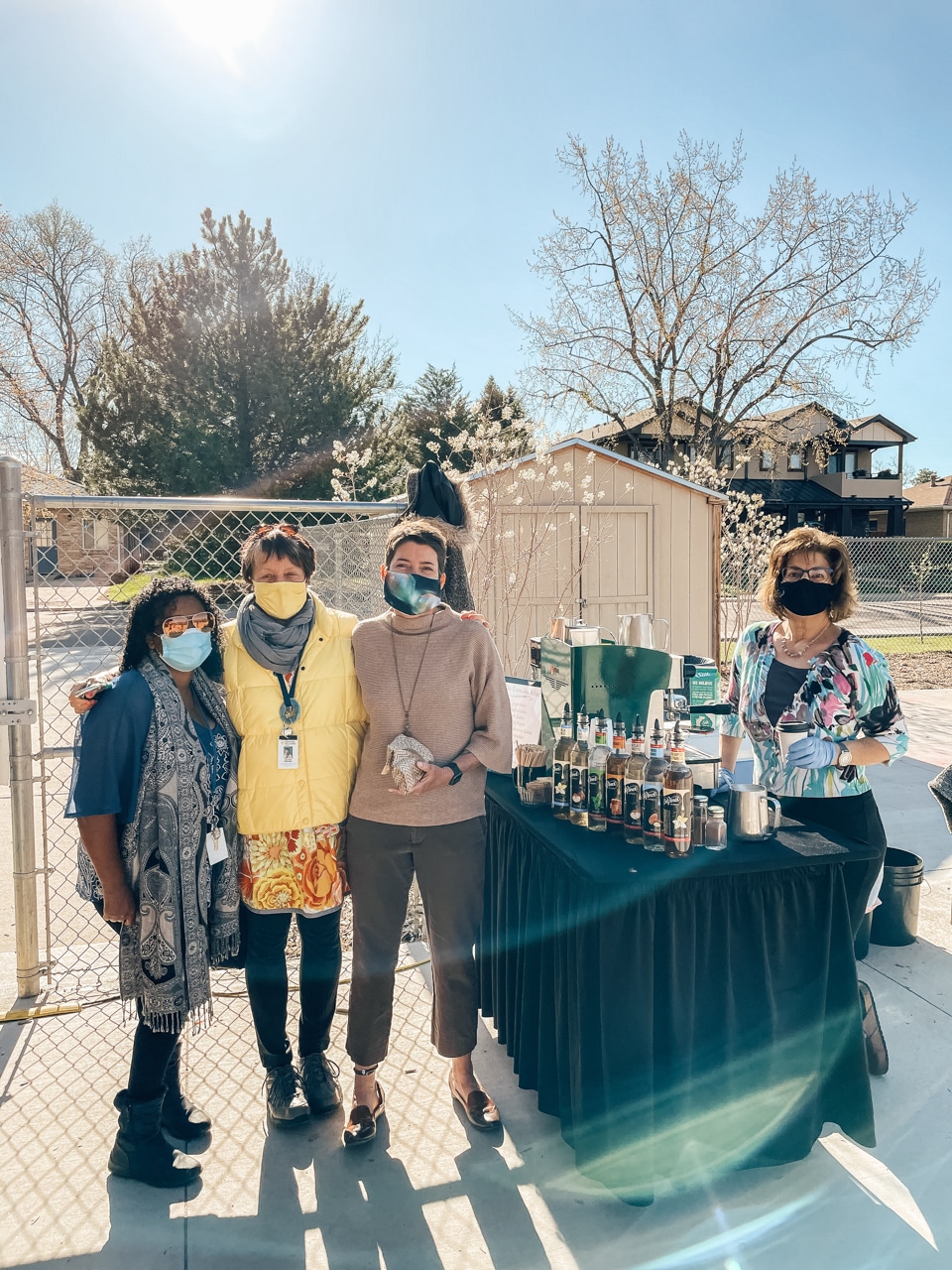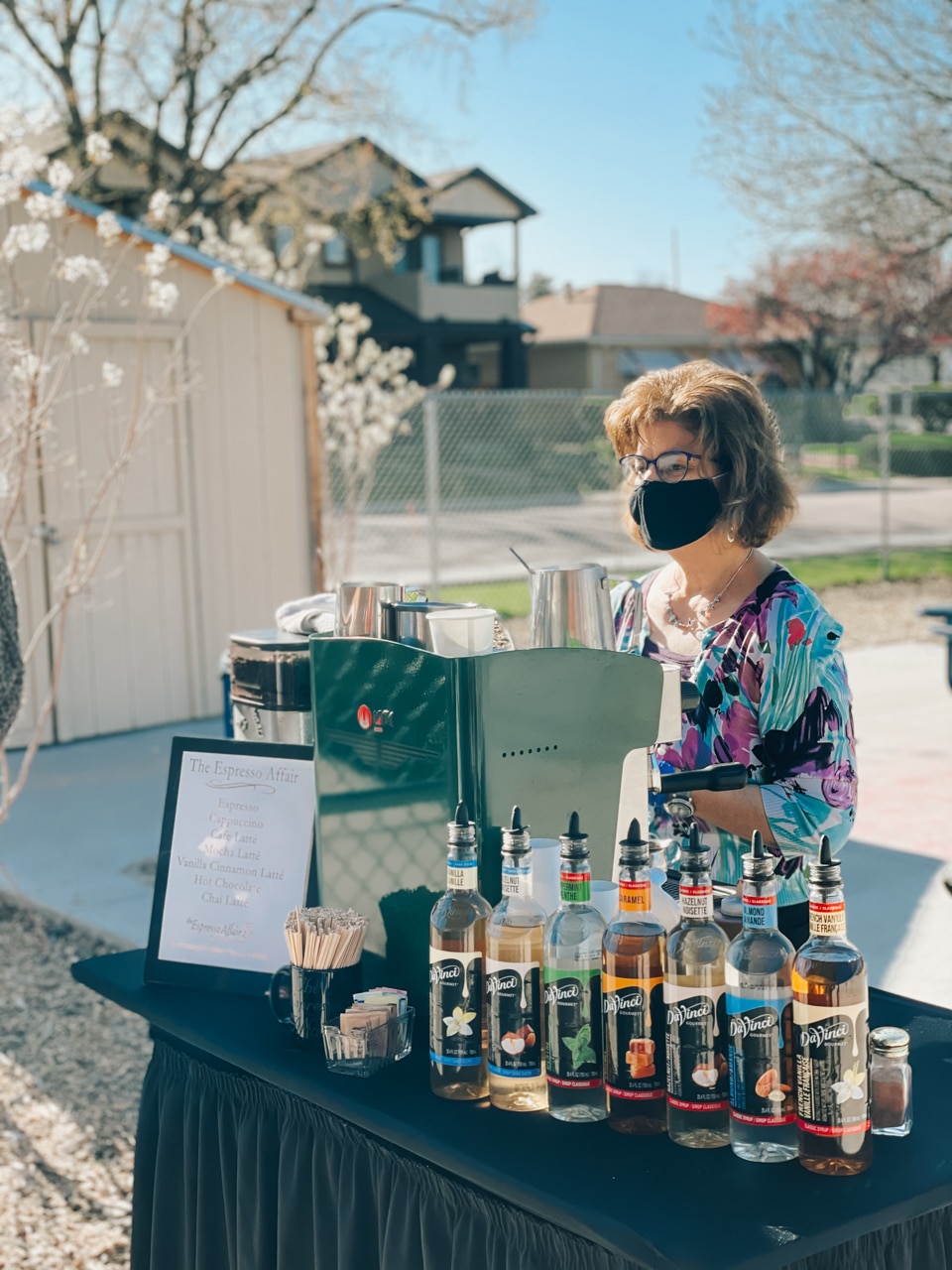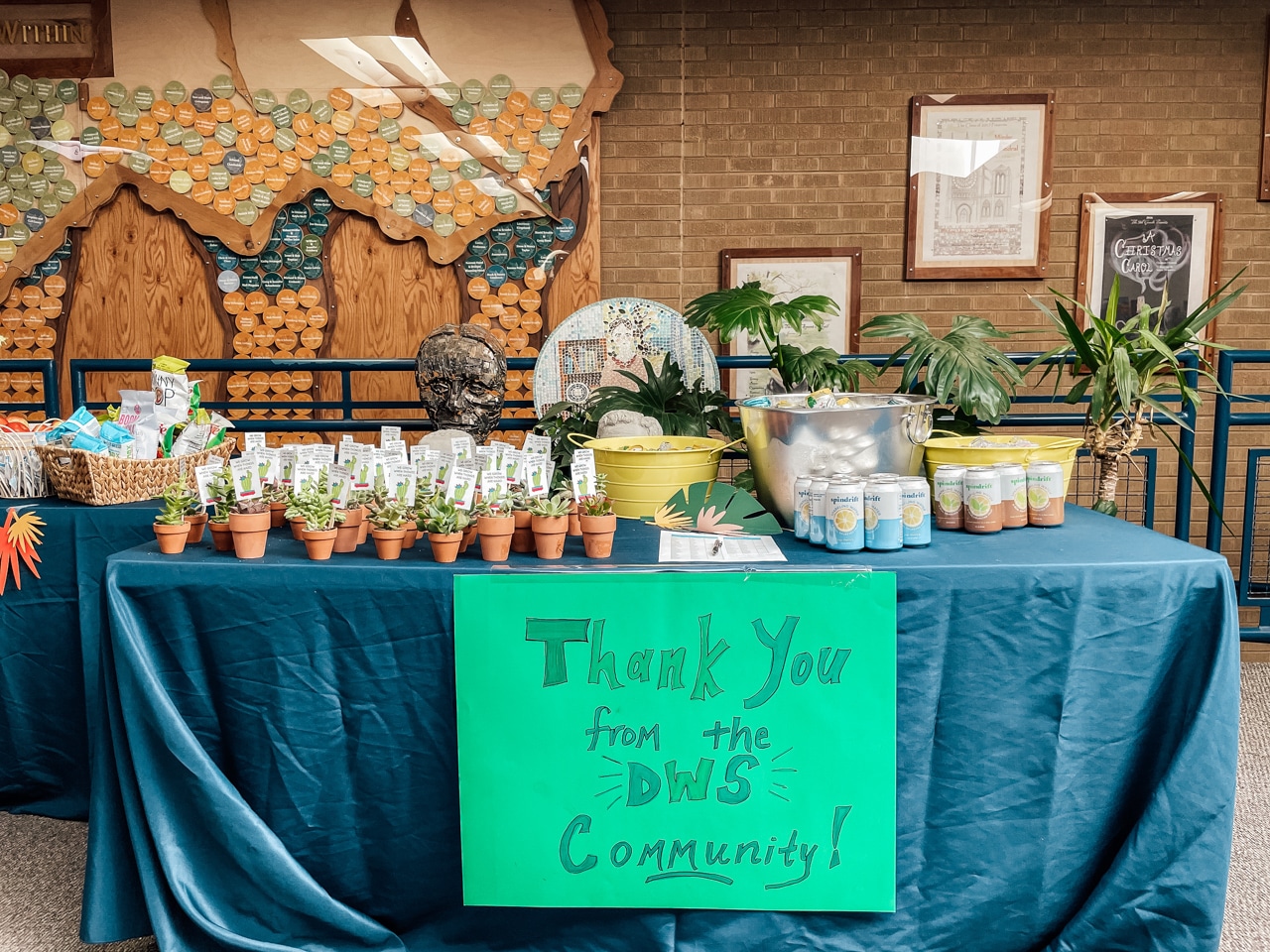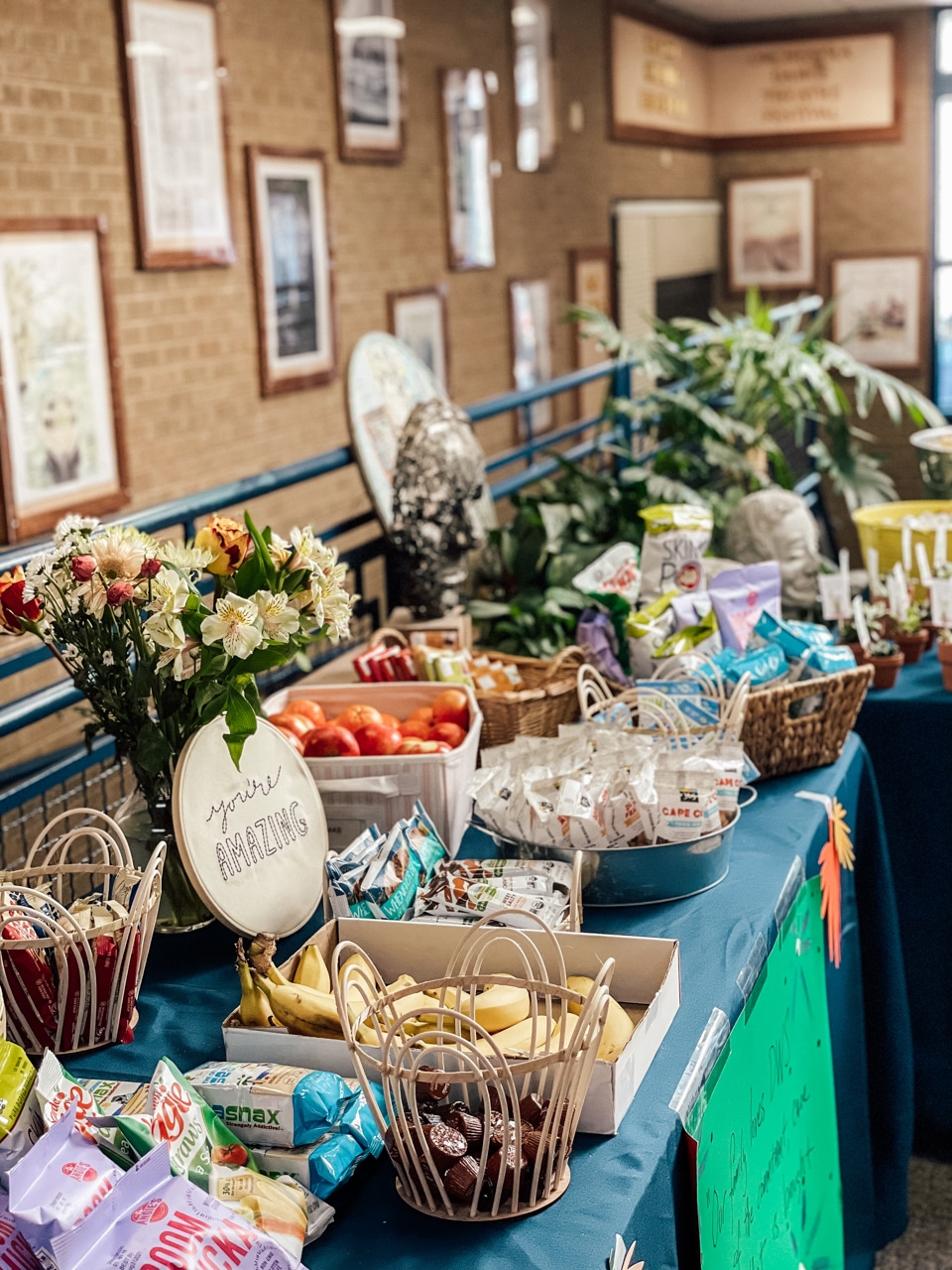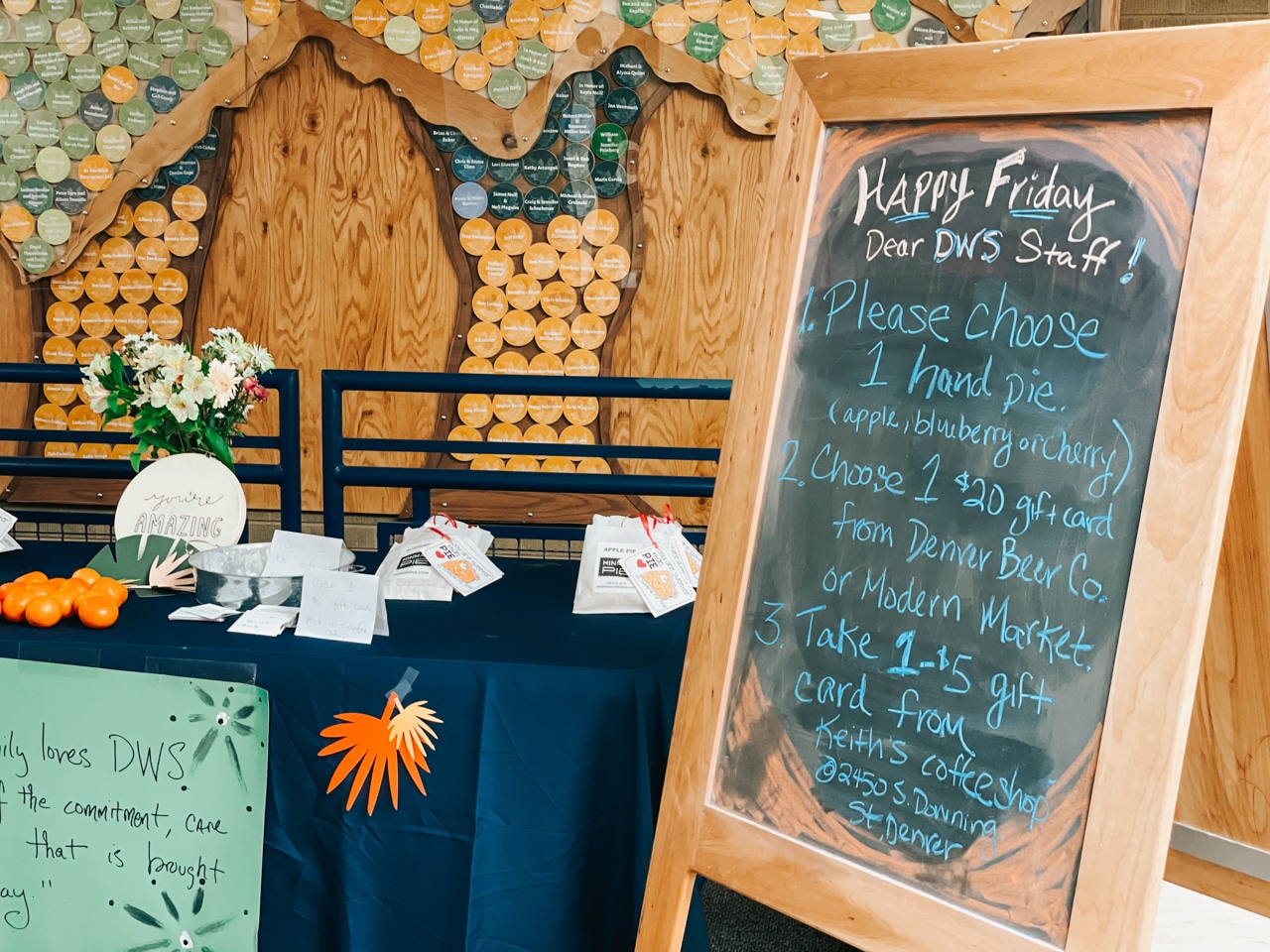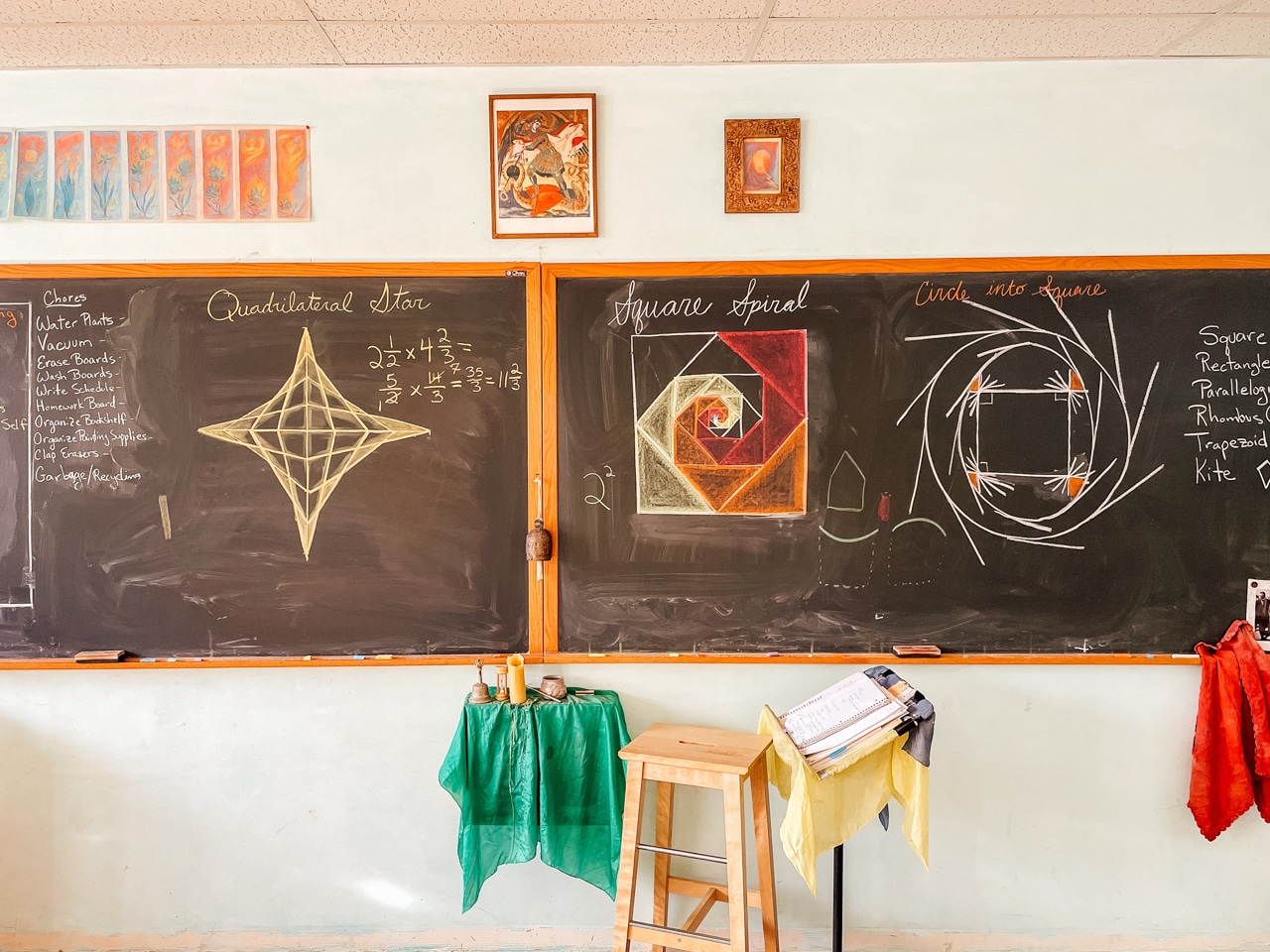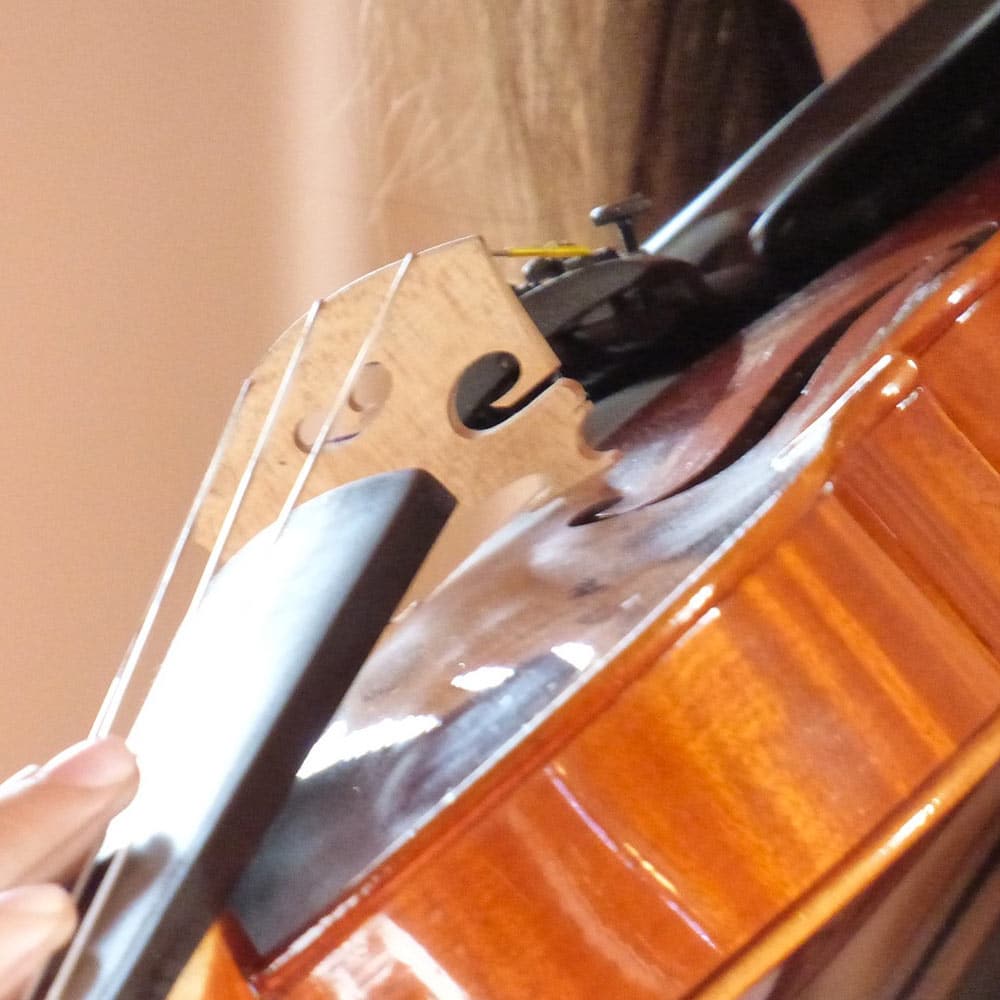2026 Niche Rankings
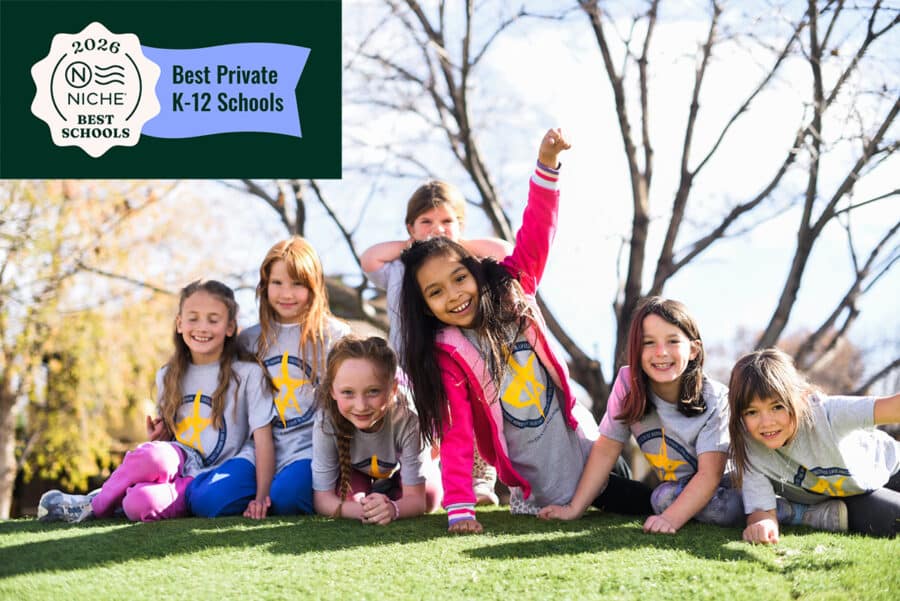
- #8 of 30 in Best Private K-12 Schools in Colorado
- #5 of 14 in Best High Schools for the Arts in Colorado
- #12 of 51 in Best Private High Schools in Colorado

Sustainability Corner
One of the goals of The Denver Waldorf School Parent Council for the 2022/2023 school year is to focus on sustainability at DWS. We have started this blog series to let our wonderful parent community know about sustainability efforts under way, spotlights on best practices or student stars who are making a difference, and sharing articles or tried-and-tested, eco-friendly recipes to spice up your meatless Monday.
In the works at DWS...
- The parent council is committed to increasing sustainability education, awareness, and engagement among our student population.
- Currently, the parent council is brainstorming age-appropriate ideas and projects to implement in the classrooms from ECE through high school.
- In addition to these efforts, we have installed a snack wrapper Terracycle bin by the front office to reduce plastic waste from lunches and snacks.
Pin-worthy ideas
This is a great article about more sustainable options for the holidays: https://www.smallfootprintfamily.com/eco-friendly-holiday-tips
Below is a great, plant-based Earth bread recipe that is a family favorite. I hope you’ll have a chance to test it out and let me know your thoughts. Enjoy!!
Do you have an idea, recipe, or article to share? Would you like to bring attention to a Sustainability Student Star? Please reach out to Emily Riccio or Jennifer Neeley. We’d love to hear from you!
Nene’s Earth Bread (Makes 1 Loaf)
Note: I use almond flour to keep the carbs down for our diabetic daughter, but if you prefer a gluten free or traditional flour, omit the oat flour or the bread will be too dry/dense.
1/2 cup oat flour
1 cup almond flour
1/2 cup brown sugar or honey
1/2 tsp baking soda
1/4 tsp baking powder
dash of salt
1/4 tsp cinnamon
1/8 tsp ginger
1/16 tsp cloves
1 cup grated zucchini
1/4 cup grated carrots
1/4 cup mashed banana
1/4 cup applesauce
1/4 cup coconut oil
2 eggs
1 tsp vanilla
Directions:
Set oven to 350.
Mix flours, sugar, salt, baking soda, powder and spices.
In the bowl of your mixer, been the grated veggies and fruits, oil, eggs and vanilla.
Slowly add the flour ingredients to the veggies/fruit ingredients.
Mix until incorporated.
Pour into a well greased or parchment lined bread pan and bake for 50 minutes to 1 hr or until toothpick inserted comes out clean.
Faculty & Staff Appreciation Week
As part of Teacher Appreciation Week this past week, our faculty & staff were showered with a new surprise each day as a token of gratitude from our parent community. Thanks to the generosity and thoughtfulness from our Parent Council Reps, parents, and families, they were treated with Summer Self-Care bags including goodies from Topo Designs, lunch in the courtyard from Cochina Taco, coffee cart & pastries, snack station & succulent plants, and for a grand finale, dinner gift cards and individual hand pies! Along with encouraging notes sprinkled throughout our hallways, there was certainly much warmth and gratitude in the air for all who make our community a beautiful place to learn and thrive.
Below is a letter from our school director, Kelly Church:
Dear Parents and Parent Council Reps,
The support you have shown to all of us here at the school this year has been amazing! Throughout the year, each time you have recognized our efforts it has put a new spring in step and a swagger in our walk! Your acknowledgement of our work in this challenging year has made a huge difference. We so love being with your children and we are honored to spend our days with each of them. Thank you for taking the time to share and show your appreciation, we feel truly loved.
With gratitude for you all,
Kelly
There were many, many words of appreciation shared amongst our faculty & staff, including:
- “Yummy, Yuuuuumy, Yummmmy! This is the best week ever!” – Christa Gustafson
- “Thanks to Parent Council for all of your work on all of this” – Mike McHenry
- “Many thanks to parent council for the goodies. I feel the love!” – Sarah Meyer
- “The coffee lady had everything I wanted & more! I’m even trying something I’ve never had before, which is saying something because coffee is my religion!” – Brie Kaiser
- “Thank you so much for all the surprises this week. They have really been helping me.” – Sarah Boyer
- “This is the best thing that’s ever been done! The Topo bags are so cute and I need to get some for all my girlfriends! Amazing.” – Brie Kaiser
- “The abundance is so striking. I’m speechless.” – Deb Wolf
- “It sort of feels squishy, like being hugged by parent council!” – Dawn Archer
- “Thank you, I feel so loved – this year has been so hard.” – (through tears) Milandra Pfister
- “Your little gifts throughout the year were wonderful and greatly appreciated. Your support means a lot. Thank you.” – Faustina Pfister
- “I feel so supported and seen. There was such thoughtfulness behind each surprise” – Jessie Cartwright
- “With our hearts, hands, and bellies full, we feel so much love from this incredible community. Thank you!” – Jen Lamboy
This would not have been possible without Carrie Tentori & Nicole Reinan spearheading the efforts, Parent Council Reps collecting sentiments about all of our faculty & staff, and of course our caring parents & families for donating so generously.
We would also like to thank the wonderful businesses in our greater Denver community for helping make this week a success, including Cochino Taco, The Espresso Affair, Hinman’s Bakery, Topo Designs, Keith’s Coffee, Denver Beer Co, Mod Market, and also the following businesses from months past including Snarf’s Sandwiches, Phia Alchemy, Santiago’s, Tokyo Joe’s, Crock Spot, and Steam!
Thanks to all for the care, commitment, and intention that is shared within our wonderful community each and every day.
Parent Council Meeting: April 2021
For our last meeting of the school year, the DWS Parent Council was joined by Student Support Coordinator Dr. Sarah Boyer and Health and Safety Manager Christa Gustafson. Please enjoy the recording, minutes, and student support resources below.
We also came across this article you might find valuable from The Atlantic titled There’s a Better Way to Parent: Less Yelling, Less Praise.
Meeting Minutes
Click the button below to download the minutes from the April, 2021 Parent Council meeting.
Recorded PC Meeting and Student Support Presentation

Student Support Resources from Dr. Sarah Boyer
Parent Council Meeting: January 2021
For our first meeting of the new year, the DWS Parent Council was joined by School Counselor Jenny Thompson to discuss mental health through Covid-19 for both students and parents. Her presentation covered:
- Mental health trends she’s seeing related to how COVID is affecting children
- Tips to parents about how we can be one step ahead of these problems
- Ways parents might engage in self care.
Following the mental health presentation and live Q&A, parents broke out into smaller groups by their children’s ages. Scroll down to watch the recorded meeting and presentation. Or visit Jenny’s Corner to access tips for parents and students, mental health resources, and more!
Resources for Talking About Racism
We also want to share some resources from the Center for Racial Justice in Education for talking with kids about race, racism, and racialized violence.
Meeting Minutes
Click the button below to download the minutes from the January 2021 Parent Council meeting.
Recorded PC Meeting and Mental Health Presentation

Accreditation Discussion with School Director Kelly Church
We would also like to share a discussion on independent school accreditation with Kelly Church from a Parent Council meeting held last Spring.
The Bacon is Served!
A very special thank you to all our Holiday Hams, Colorado Gives Day donors, and all who attended our virtual event! This year we raised $116,500 in donations and could not be more proud of the outpouring of support from our community and beyond.
Want to make further contributions to The Denver Waldorf School? You can donate on our Colorado Gives Day page any day of the year!
Get a Taste of the Hams Who Made Our Event a Success
In case you missed our Holiday Ham-a-Thon or just can’t get enough of the awesomeness that ensued during the event, we’ve brought you a second helping below. Enjoy!
Act 1 — Mahdyeh Nowkhandan’s Persian Dance
Act 2 — Spicy Interview with Leo Bond and Kelly Church
Act 3 — Jenny Thompson’s Family Musical Performance
Act 4 (and Winner!) — Alexa Krakauskas’s juggling
Act 5 — War of the Worlds Radio Play with 2019/2020 High School Seniors and David Johnson
Act 6 — Mahdyeh Nowkhanden’s Bellydance
Act 7 — Carla Abate Performing John Prine’s Angel from Montgomery
Act 8 — Zoombombing of Spacial Dynamics with Charlie Orphanides
Act 9 — Ian Shirkey Performing Celtic Tunes
Act 10 — Sarah Box’s Video Accompanied by The High School Performing John Lennon’s Imagine
Act 11 — Mahdyeh Nowkhandan’s Fusion Dance
Act 11 — Vernon Dewey & Tom Clark Performing Zoomed and Confused
Act 13 — Bedtime Story (Vasalisa, the Beautiful) Told by Dawn Archer
DWS Commitment to Anti-Racism

Artwork created with love by our high school art teacher, Kimberly Martin, along with her two daughters (and DWS alumnae) Bella and Tallulah
We at The Denver Waldorf School continue to be deeply saddened and outraged at the tragic and violent death of George Floyd. As a school founded on principles of love and humanity, these actions of brutality strike against our very mission. We recognize that if we do not stand up against systemic racism that faces the Black community, then we too are complicit in oppression.
It is our responsibility to bear witness to what is happening in the world, to elevate the voices of marginalized people, to change the course of inequities, and to break down structural prejudice in all forms where it exists, particularly in our own school
community.
We have much more work to do and here are some examples of steps we are taking and have taken toward greater diversity and inclusion at DWS.
We have worked to grow The Denver Waldorf School’s diverse student body during the past five years from 16% identifying as people of color to 25%. Our next goal is to grow classrooms whose diversity invites many perspectives from several backgrounds, minimizing the risk of tokenization. We do this by continuing to grow our Diversity Scholarship, broadening our outreach efforts, and working to ensure that DWS is a welcoming, safe space.
The Denver Waldorf School’s inherently multicultural curriculum has broadened and deepened to be ever more inclusive of diverse stories and perspectives. We have brought diverse community members in and together through our festivals and celebrations we are working to make our festival life even more inclusive, honoring all people. These same efforts are being taken up on a national level for the greater Waldorf education movement, in particular teacher training institutes. We strive to grow increasingly welcoming and affirming and we, as individuals involved with the school, are working to deepen our personal understanding and be better witnesses of the experiences of people from different backgrounds than our own.
As staff and teachers, we participate in trainings on cultural competence, examining privilege and dismantling oppression. We also strive to help our students recognize and counter white supremacy and oppression, developing positive identities through conversations with their teachers as well as with guests, most recently the Flobots.
Our Diversity and Inclusivity Committee helps shepherd this work throughout the school. Together we reflect, envision, and act to shape The Denver Waldorf School as a place where families, faculty, and staff of all backgrounds feel welcomed and valued. Part of our work as a committee is studying together. This year we read Why Are All the Black Kids Sitting Together in the Cafeteria by Beverly Daniel Tatum. This book helped us better understand racial identity development as it unfolds in Black children, children of color, and White children and our role as parents and educators.
This summer, Diversity and Inclusivity member Vernon Dewey invites all DWS community members who are interested to join him in reading and discussing White Fragility by Robin DiAngelo, a book previously read by the committee. This book is particularly helpful for White people in understanding White privilege in order to better engage in social change. You may email him at [email protected]. Magally Luna will also be leading a Healing Justice Circle for any DWS People of Color wanting support during this time. You may email her at [email protected].
We also recommend the following:
How to talk to children about racism and violence: resources for teachers, parents and guardians
Anti-racism Resources for White People: a compilation of resources for white people and parents to deepen our work in anti-racism
Array Now: Started by Ava DuVernay, director of Now They See Us, this is a compilation of African American independent films – an array of stories and voices.
Teaching Tolerance: Teaching about race, racism, and police violence
75 Things White People Can Do for Racial Justice: Curated by Medium and updated regularly.
Thank you to our community for joining us in elevating our commitment to social justice and renewal.
In Solidarity,
The Denver Waldorf School
3 Things You Can Start Doing Now to Keep Your Kids Safe Online
There’s no arguing that modern technology poses a range of dangers to your children’s development and to the value of their relationships. You know your child needs your guidance to develop a healthy relationship with technology, and to learn to regulate their own use in a healthy manner in the long term.
You also know that you must protect your child, especially from more acute threats, until they learn the foundations of self-regulation.
Ideally, your child’s school would partner with you to help you manage technology use and nurture the development of your child’s inner life. But the reality is that screen time and internet exposure is becoming increasingly pervasive in most schools.
The world is becoming increasingly digital. Whether you keep your children on a strict screen-time schedule or allow them to regulate their own time, these tools will help you keep your children safe as they explore the digital world.
Password Manager
Password managers can keep your children from accessing sensitive account information while using your devices, while keeping those accounts accessible to you.
A password manager is digital organizer for all of your online passwords that is stored online and accessed with, well, a password.
The benefit of a password manager is freedom of security. With a password manager you can protect all of your online accounts with strong passwords with the reassurance that you will be able to access your accounts even if you can’t remember each individual password. And that’s great, because the number of password protected accounts we need just to get from one place to another is only increasing.
When deciding on a password manager, you’ll have to determine whether you prefer cloud storage or local storage, which will depend on two things: how much functionality you desire and how paranoid you are. Local storage is a good idea if you’re very worried about a data breach or if you work in a highly sensitive field.
Parental Controls
Nearly every digital device is equipped with parental controls designed to help parents set and enforce limits on screen time, content, and more.
Sometimes, a device’s onboard parental controls simply aren’t enough. In those cases, there is a wide range of third-party controls, which give parents more options and provide greater functionality. Most parental control apps require a yearly paid subscription, so be sure the app you choose is right for your family’s needs.
Parental controls are important on your child’s personal devices, as well as family devices.
Click here for a detailed list of parental control options.
Communicate
Any time you consider restriction, you must also consider how such measures will affect trust between you and your child. Your child needs your trust to transition through to adulthood in a whole, healthy manner. However, this trust must be mutual. Your child must also trust you.
Thus the importance of communication. As a parent, you can’t demand trust. It’s a gradual process that requires mutual commitment and constant communication over time.
“Our highest endeavor must be to develop free human beings who are able of themselves to impart purpose and direction to their lives. The need for imagination, a sense of truth, and a feeling of responsibility—these three forces are the very nerve of education.”
― Rudolf Steiner
We minimize screen time and maximize our students' experience.
Want to see how we do it? Schedule a tour!
3 Defining Attributes of a Waldorf High School Student College Recruiters Can’t Resist
College recruiters are actively seeking Waldorf educated youth for their programs in record numbers. Since the release of this 2015 study published by Stanford University, primary and secondary educators have become increasingly aware of the exceptional quality and deeper learning opportunities of Waldorf education, and increasingly enthusiastic.
This year alone, 94% of graduating seniors at the Denver Waldorf High School have been accepted to high quality postsecondary institutions, earning $4.4M in scholarships.
Waldorf students leave high school with three traits the best colleges and universities are particularly excited about.
Are you looking for a great high school? Take this free checklist with you on your high school tours!
(Click here to download now.)
Self-direction. In a world where change is the only thing we can count on, it’s not enough to wait for instructions. To be successful, one must be able to assess circumstances and direct their own actions. This is so not only for employment, but for life.
A self-directed individual can look beyond the norm to piece together a fulfilling life for themselves based on their own needs and joys. These are the individuals who are least susceptible to mental illness and spiritual fatigue.
Personal Development. Before adulthood, personal development is a physiological function of growth. Later, however, we must actively and consciously endeavor to continue growing toward our best selves.
Waldorf education prepares graduates to strive continuously toward personal growth and development. They’re challenged not only to examine the world around them, but the world within them. And they career this ability into the rest of their life.
Academic Confidence. It’s long been understood that confidence, one’s belief in themselves, is the spice of success. However, overreaching confidence can become detrimental when not focused. Academic confidence is specific. Waldorf high school students are challenged to learn that they can learn. They leave high school confident in their ability to identify problems and investigate solutions.
We know from experience why Waldorf students are in such high demand at the world’s best colleges and universities. But what does the research say?
“One overriding result is that Waldorf students seem more interested to learn and more socially engaged than mainstream students,” according to Bob Dahlin, international academic and author of Rudolf Steiner: The Relevance of Waldorf Education.
Read "How to Choose the Right High School"
But this study isn’t all roses. In his conclusion, Dahlin suggests that while Waldorf students leave high school with a greater likelihood of being driven to continue their education not only immediately in college or university, but throughout their life, they may be behind their peers in fact recitation. He notes in his examination that we may have to choose between fostering wrote memorization of a greater pool of facts, or fewer recitable facts and a greater passion for inquiry.
Higher education administrators appear to have made their choice.
In a world wherein all factual knowledge is accessible instantaneously, fostering the intrinsic drive to discover is the most important trait we can foster in our youth to ensure lifelong success.
Come see how we do it. Schedule a tour of our high school!

